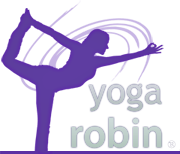Exhaustion
Ujjayi breathing in yoga calms the Nervous System too. Breathing that's involved in most other activities, such as hiking up a hill, exerts the breath in a way that allows more oxygen for the muscles and Respiratory System. In other words, breathing through the mouth is necessary to withstand most activities. In yoga, it's not necessary to open the mouth to breathe, as we bathe ourselves in the breath that circulates within us; there are resting yoga postures for exhaustion such as Balasana (Child's Pose).
Involuntary vs. voluntary breath
What happens to the Respiratory System when we are working beyond our capacity? Or when we are practicing Pranayama breathing, voluntarily holding our breath at top of inhale or bottom of exhale, or even holding our breath under water?
Typical breathing is under involuntary respiratory control but we have the capacity for voluntary control too. As the levels of carbon dioxide and hydrogen ions increase in bodily fluids, impulses from the respiratory center overcome the voluntary inhibition of breathing, forcing us to take a breath. Deep and rapid breathing is called hyperventilation. If this gets out of control, and fear enters, a panic attack could occur. Breathing is essential for our life.
Thirst and breath
Why do we get thirsty when exercising and out of breath? Muscle-building pulls water from the muscles and into the blood (like a pump) to maintain circulation. Staying hydrated is necessary. Drinking water replenishes us; thirst is not related to sweat or electrolytes. It would seem to be part of Respiratory System as it occurs when exhausted but it's the Muscular System.

 involuntary respiratory control
involuntary respiratory control